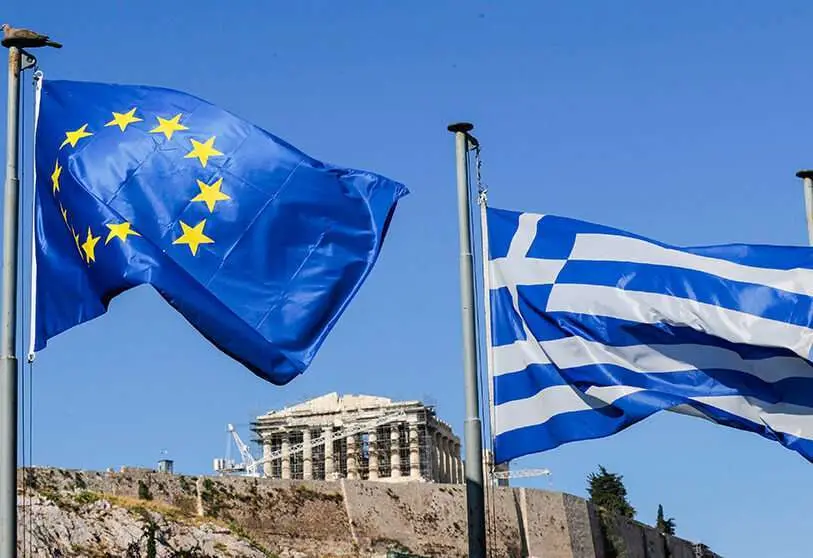Eurozone tutelage and misery

Greece, whose crisis nearly derailed the European project, has just shaken off the tutelage of the Commission, whose "men in black" have been closely monitoring its economy since the crisis erupted in 2010 and Athens desperately appealed to the European Central Bank and the International Monetary Fund for help in overcoming its bankruptcy. Three successive recovery plans, with loans totalling 289 billion euros, have managed to put Greece back on the rails of at least partial normality, but at the price of great sacrifices.
As always when borrowing money, and even more so if it is in gigantic amounts, the creditor imposes conditions. It is an inexorable law, since in financial relations no one helps someone whom they know not only will not pay back what they have borrowed, but may even be presented as a greedy and ruthless capitalist, eager to extract every last drop of blood from the poor and beneficent borrower.
And in Greece, as in the case of Portugal and Ireland, which were also severely hit by the financial crisis at the time, the potion could not have been more bitter: drastic wage cuts combined with a sharp increase in tax burdens, an absolute freeze on civil servants' salaries and dramatic cuts in the budgets of all public bodies, from administrations to hospitals. The Greek government at the time, caught up in the neo-communist whims of its star guru Varufakis, soon realised the reality check of either accepting the conditions of a tough recovery plan or leaving the EU umbrella. And, of course, the then head of government, Alexis Tsipras, opted for the former, having to swallow all his previous demagoguery, facing one of the largest waves of social protests in Greek history.
No wonder then that the current Greek prime minister, Kyriakos Mitsotakis, greeted the end of the European Commission's enhanced tutelage with exultation: "This is a historic day. It is the end of a 12-year cycle, which has brought pain to citizens, slowed economic progress and divided society. We are now starting a new one, in which we can see a clear horizon of growth, unity and prosperity for all".
Euphoria is logical but does not mean a radical change in the situation of the Greeks. The recovery to pre-crisis employment levels is proceeding very slowly. It is true that the European Commission itself expects Greece to end the year with growth of 4 per cent, above the EU average of 2.8 per cent, but it will have to refrain from all kinds of "joys" to maintain a primary surplus of 3.5 per cent of its GDP in its public accounts, given that its debt is still a gigantic 180 per cent of that GDP.
The consequences of the wastefulness of yesteryear and spending far in excess of revenues will not disappear overnight. Many sacrifices are still to be made after this "symbolic conclusion to the most difficult period the euro zone has ever gone through", in the words of the European commissioner for the economy, Paolo Gentiloni.
In this respect, it is worth linking all this to the publication by the OECD of the Misery Index, an indicator created in the 1970s by the American economist Arthur Okun in the wake of the first oil crisis in 1973. Okun combined inflation and unemployment rates to design a table in which the higher the score, the higher the risk of social and economic costs for a country.
Well, in 2022, with the exception of Turkey, which tops the list of the 38 OECD countries in this Misery Index with a remarkable and terrifying 89.9 points, the next five countries are all from the European Union: Estonia (28.5), Latvia (27.9), Lithuania (27.4), Greece (23.9)... and Spain (23.4).
In view of these results, it seems clear that the Baltic countries, Greece and Spain are the most problematic group in the European Union, far from those which, in the general crisis caused by the pandemic and the war in Ukraine, present a less serious situation, such as the always problematic Italy (16 points), France (13.3) or Germany (10.3), but far from Japan, which with only 5 points is the OECD country least affected by "misery".
And, in the light of the Greek experience, it is not difficult to conclude that for the countries hardest hit by the crisis the horizon is not exactly bright and clear, and sooner rather than later they will have to face the stark sacrifices that are being imposed.

